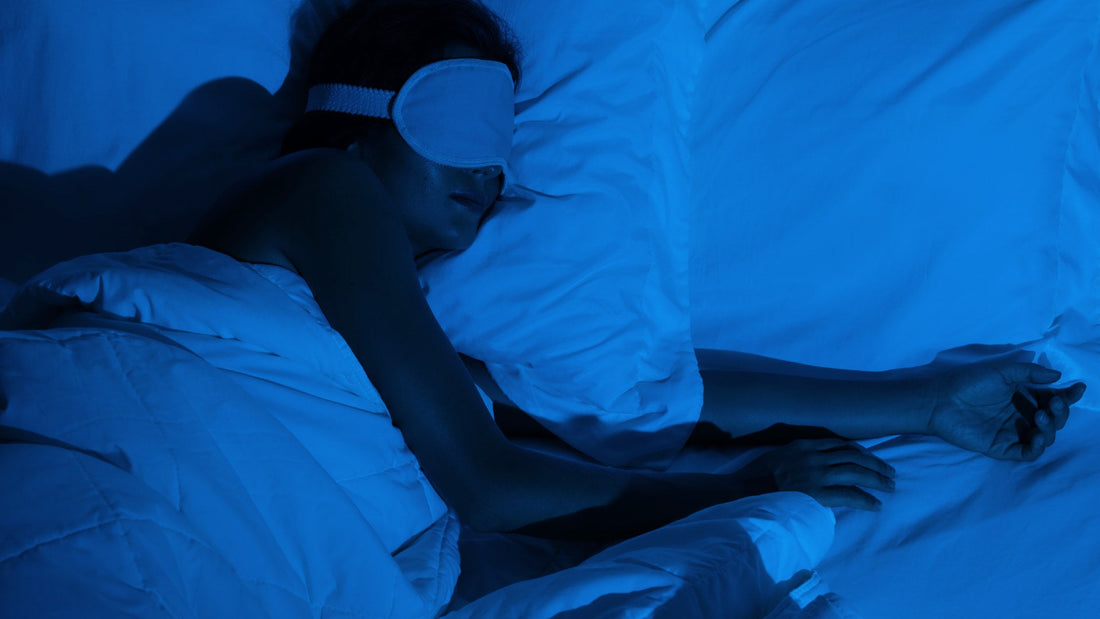
Exercise and Sleep Deprivation: Is sleep stopping you from meeting your fitness goals?
Share
How many times have you heard that phrase “no pain, no gain”? A lot, right?
For whatever reason, many people think that to achieve fitness and health goals they have to make every workout feel-like-you’re-dying intense. Even worse: They also assume that exercising to the brink of exhaustion every day shows how dedicated they are.
The truth? Rest and yes, sleep is the key to achieving your fitness goals.
Why getting enough sleep is important if you workout
It might sound counterintuitive, but sleep is the “magic ingredient” that can really make all your time in the gym or on the trail worth it.
The easiest thing you’ll notice when you try working out with a lack of sleep is a lack of energy — and a lack of motivation to actually do your workout. Even worse: Your reaction time and ability to focus on your workout is limited by the effect of sleep deprivation. One study showed that people who tried to perform while sleep deprived had brains that were somewhat inactive while they were awake.
Training for a big game or race? You need to train - and you need more sleep than you think you need. Athletes like LeBron James, Usain Bolt, Venus Williams and Roger Federer sleep anywhere from 10-12 hours per night.
You wouldn’t drive your car without doing proper maintenance on it, would you? Think of your body in the same way: Our bodies do their own “maintenance” at night, processing through toxins.
Also, our bodies grow while we sleep — literally. Our bodies secrete growth hormone (GH) at night, helping us grow and rebuild muscle tissue we break down during exercise.
Training for a big game or race? You need to train - and you need more sleep than you think you need. Athletes like LeBron James, Usain Bolt, Venus Williams and Roger Federer sleep anywhere from 10-12 hours per night.
“If I don’t sleep 11 to 12 hours per day, it’s not right,” Federer once said.
They’re still at the top of their games, so they must be onto something here.
One study on Stanford University basketball players found that players who added an additional two hours of sleep a night increased their speed by almost five percent — and they were nine percent more accurate with their free throws. Not to mention, they had faster reflexes and had better moods.
You might not be on a college or professional team, but chances are pretty good that you’ll feel the same effects if you get more shut eye every night. And if you don’t have time to sleep an extra hour or two? Try to sneak in an extra 20 or 30 minutes. You’ll be surprised at how much it helps your workouts.
What happens to your body when you don’t get enough sleep
Skipping a couple hours of sleep every now and then isn’t that big of a deal, but chronic sleep deprivation can affect your health — and even be life threatening.
In the 1980s, University of Chicago researcher Allan Rechtschaffen studied the effects of sleep deprivation on rats. The rats were able to go some time without sleep, but eventually they all died. The exact cause is debated among researchers, but the general consensus is that stress of no sleep had a hand in their demise.
There are also stories of people dying after staying up for days, like this Taiwanese man who died after a three-day video game binge. Experts eventually determined he died of cardiac arrest, possibly stemming from the stress of no sleep.
 A number of other health problems are shown to stem from the effects of sleep deprivation, including depression, diabetes and obesity. One study of 60,000 women found that women who slept five or fewer hours each night had a 15 percent greater chanceof becoming obese when compared to the women who slept seven or more hours. The “why” isn’t completely known, but researchers theorize that it’s either because the women who slept less had more time to eat during the day or because they’re too tired to exercise.
A number of other health problems are shown to stem from the effects of sleep deprivation, including depression, diabetes and obesity. One study of 60,000 women found that women who slept five or fewer hours each night had a 15 percent greater chanceof becoming obese when compared to the women who slept seven or more hours. The “why” isn’t completely known, but researchers theorize that it’s either because the women who slept less had more time to eat during the day or because they’re too tired to exercise.
Exercise helps quality of sleep, too
While sleep can help you improve your workouts, the opposite is true as well. According to the National Sleep Foundation, as little as 10 minutes of aerobic activity (like walking or biking) can help improve your quality of sleep — especially if you do it regularly.
The reason: Exercise stimulates the release of feel-good chemicals known as endorphins, which help reduce stress and make you tired. It’s believed that early morning or afternoon exercise can help you reset your sleep-wake cycle, making it easier for you to fall asleep — and wake up — when you’re supposed to.
But what if you can’t work out earlier in the day? That’s OK, too. You probably don’t want to start a CrossFit workout at 10 p.m., but gentler, less-intense exercise like walking, yoga or stretching shouldn’t disrupt your sleep patterns.
So, forget about that “no pain, no gain” mantra for good — and go to bed!



